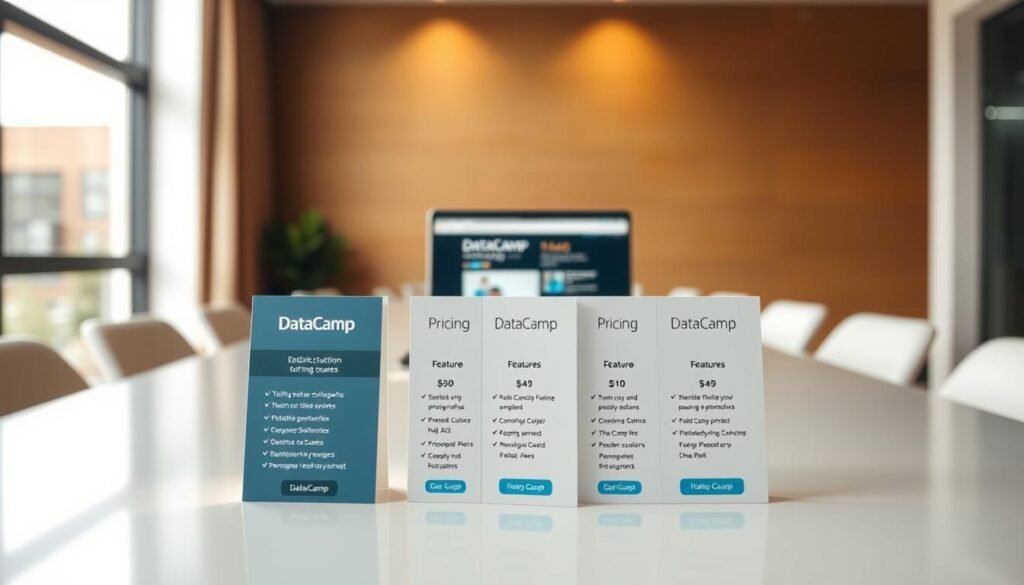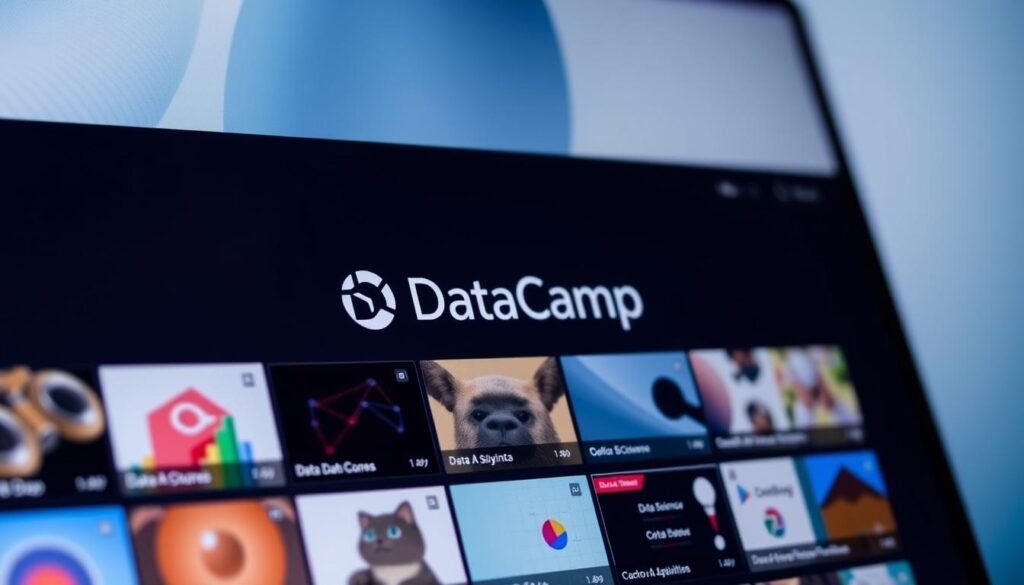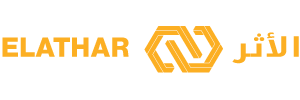Are you ready to unlock the power of data science but unsure where to start? With over 16 million learners worldwide, DataCamp offers top-tier training in Python, SQL, R, and AI/ML. Whether you’re a beginner or a seasoned professional, mastering these skills has never been more accessible.
The platform combines hands-on projects with real-world applications, including ChatGPT integration. This approach ensures you gain practical experience while building a competitive edge in analytics or AI roles. The structured courses cater to all levels, making career growth in tech achievable.
Key Takeaways
- Learn in-demand tools like Python, R, and SQL through interactive lessons.
- Gain practical experience with real-world projects and AI integrations.
- Accessible for beginners and valuable for professionals.
- Over 16 million users trust the platform for skill development.
- Designed to accelerate careers in data analysis and machine learning.
What Is DataCamp?
A browser-based platform makes learning data science effortless. Founded in 2013, it offers 500+ courses with a structured 4-step method: learn, practice, apply, and assess. All lessons happen online, so no software downloads are needed.
Overview of the Platform
The website features a built-in IDE for coding exercises. Short videos (under 5 minutes) pair with interactive tasks to reinforce skills. Most courses take 2–4 hours, perfect for busy schedules.
Real-world projects bridge theory and practice. For example, a computational biology student used Python lessons to automate lab data analysis. This practical focus helps learners build job-ready expertise.
Who It’s For
The platform serves students, career changers, and professionals upskilling in analytics. Beginners start with fundamentals, while experts tackle advanced AI. Teams also use it for scalable education solutions.
Enterprise plans help companies train staff efficiently. Whether you’re learning solo or with a group, the website adapts to your goals.
Key Features of DataCamp
Mastering data science is easier with bite-sized lessons and AI-powered tools. The platform combines micro-learning with practical projects, ensuring skills stick through real-world applications.
Micro-Learning and Bite-Sized Courses
Lessons are designed for busy schedules, with 5-minute daily modules. An XP rewards system keeps learners motivated, turning skill-building into a game.
Over 308 hours of completed coursework show this approach works. Users report better retention by focusing on one concept at a time.
AI-Assisted Learning with ChatGPT
The platform integrates AI learning tools like ChatGPT for code generation. Prompt engineering courses teach users to leverage AI effectively.
Dark Mode and other updates enhance accessibility. Real-time feedback helps troubleshoot errors faster.
Hands-On Projects and Real-World Applications
Skill tracks guide learners through projects like data visualization with Tableau. These mimic workplace tasks, building job-ready expertise.
New onboarding improvements help users start faster. Whether analyzing sales trends or automating reports, the focus is on practical data analysis.
DataCamp Pricing Plans
Flexible subscription models make skill-building affordable for all budgets. Whether you’re a solo learner or part of a team, there’s a plan to match your learning goals. Compare options below to find the best fit.
Free Basic Plan
New users can start with free access to the first chapter of all courses. This includes interactive exercises and videos. It’s a low-risk way to test the platform.
Upgrading unlocks full libraries and projects. The free tier is ideal for exploring basics like Python or SQL.
Premium Plan for Individuals
For $25/month, Premium grants full access to 500+ courses and projects. Students save 50% with a $149 annual plan. A 7-day free trial lets you preview features.
Priority support and certificates are included. This tier suits serious learners investing in career growth.
Team and Enterprise Plans
Teams pay $25 per user monthly (minimum 2 users). Enterprise pricing is custom, with volume discounts. Both include progress tracking and custom content.
Ideal for companies upskilling staff in analytics. Admin dashboards simplify managing group learning.
DataCamp Course Catalog
Looking to build in-demand skills? The course catalog offers structured paths for every level. Whether you’re starting with programming basics or tackling advanced data visualization, the library adapts to your goals.
Beginner to Expert-Level Courses
New learners begin with Python Fundamentals or R Essentials. These cover core syntax and logic. Intermediate courses dive into machine learning, while experts explore AI deployment.
Cloud computing options include AWS and Azure integrations. Shell and Git coursework also prepare users for real-world collaboration.
Career and Skill Tracks
The tracks bundle courses into job-ready programs. For example, Data Analyst with Python takes 47 hours. Data Scientist with R spans 94 hours, including advanced modeling.
Each track focuses on practical outcomes, like building dashboards or automating reports. Modular designs let you pace learning.
Certificates and Statements of Accomplishment
Completing a career track earns a LinkedIn-certifiable certificate. These validate skills for employers. Even single-course completions provide shareable badges.
Statements detail mastered programming concepts. They’re ideal for resumes or promotion talks.
How DataCamp Compares to Alternatives
Choosing the right learning platform depends on your career goals and preferred study methods. While many platforms offer coding education, their focus and delivery vary significantly. Below, we contrast DataCamp with top competitors to help you decide.
Coursera for Professional Certificates
Coursera excels in broad accreditation, with university-backed professional certificates taking 1–6 months to complete. Ideal for formal credentials, it lacks DataCamp’s niche focus on data science workflows.
DataCamp’s career tracks emphasize hands-on projects, while Coursera prioritizes theoretical frameworks. Choose Coursera for degrees; opt for DataCamp for applied machine learning skills.
Codecademy for Coding-Focused Learning
Codecademy’s text-based lessons simplify coding basics but miss DataCamp’s interactive IDE. While both teach Python and SQL, DataCamp integrates real datasets for practical analysis.
DataCamp’s gamified XP system and shorter modules suit faster skill-building. Codecademy wins for pure syntax practice, not data visualization depth.
Udacity’s Nanodegree Programs
Udacity’s bootcamp-style nanodegrees cost more upfront than DataCamp’s subscription model. Both include machine learning content, but Udacity’s mentor support targets career-changers.
DataCamp’s mobile-friendly web platform outperforms Udacity’s app limitations. For budget-conscious learners, DataCamp offers better flexibility.
Pros and Cons of DataCamp
Every learning tool has trade-offs between convenience and depth. DataCamp’s 4.8/5 user rating reflects strong satisfaction, but some features may not suit all data scientists. Below we break down what works well and where the platform falls short.
Strengths: Accessibility and Structured Learning
Beginners praise the guided curriculum that builds skills progressively. Short video lessons paired with instant coding exercises create a smooth learning curve.
Mobile accessibility lets users practice Python or R during commutes. The gamified XP system motivates consistent progress, especially for those new to programming.
Testimonials highlight immediate job readiness, with learners applying SQL queries or pandas operations within weeks. The structured paths prevent overwhelm when tackling complex topics.
Limitations: Lack of Local IDE Experience
The browser-based environment limits practice with real development tools. Missing GitHub integration and CLI experience means learners may need supplemental resources.
Desktop users get fuller functionality than mobile learners. Some advanced students report needing additional books or courses for production-level skills.
Despite these gaps, the platform delivers exceptional value for foundational learning. Pairing it with local IDE practice creates a comprehensive experience for aspiring analysts.
Conclusion
Ready to learn data skills that boost your career? DataCamp makes it easy to start learning with hands-on projects and AI tools. The platform’s latest updates, like Dark Mode and smoother onboarding, enhance your experience.
Combine courses with real-world applications for maximum impact. A 44-course success story proves how structured learning accelerates professional development. Daily challenges keep skills sharp, while student discounts make growth affordable.
Take the next step in data science with a free trial. Whether you’re analyzing trends or building models, DataCamp turns knowledge into job-ready expertise. Transform your career today—begin your journey now.
FAQ
What is DataCamp best for?
It specializes in data science, machine learning, and analytics training with hands-on coding exercises and real-world projects.
Does DataCamp offer free courses?
Yes, a free basic plan includes access to limited courses. Full content requires a Premium subscription.
How does DataCamp compare to Coursera?
While Coursera focuses on professional certificates, this platform emphasizes practical coding skills with shorter, interactive lessons.
Can I earn certificates on DataCamp?
Yes, certificates and skill track completions are available for Premium users, but they’re not accredited degrees.
Is DataCamp good for beginners?
Absolutely. Its bite-sized courses and guided projects make learning Python, R, or SQL accessible for newcomers.
Does DataCamp support team learning?
Yes, Team and Enterprise plans offer collaboration tools, progress tracking, and custom content for organizations.
What’s unique about DataCamp’s AI features?
The AI-assisted learning tool integrates ChatGPT to provide instant coding help and personalized feedback.
Are there downsides to DataCamp?
Some users note the lack of a local IDE experience, meaning coding happens only within the platform’s interface.







